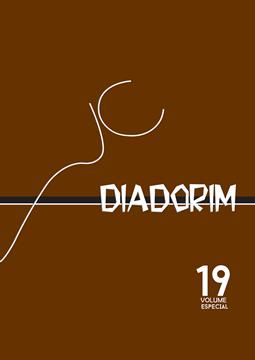Truly Minimal Pronouns
DOI:
https://doi.org/10.35520/diadorim.2017.v19n0a13512Palavras-chave:
pronome genérico, pronome genérico inclusivo nulo, língua com concordância, línguas sem concordânciaResumo
Tis paper examines the properties of inclusive generic constructions, focusing on languages where the inclusive generic pronoun is a null category. We investigate empirical data from a set of languages with and without agreement to test Phimsawat's (2011) hypothesis that the inclusive generic pronoun lacks all phi-features, and therefore has the least restricted reading, due to there being no restriction on the reference. We show that this hypothesis cannot hold true universally, as phi-features trigger agreement in inflecting languages. We show that there is a correlation between presence of agreement and restriction to human reference for null inclusive generic pronouns, based on comparison of a set of languages without agreement (Tai, Mandarin Chinese, Korean, Vietnamese, and Sinhala) with a set of languages with agreement (Finnish, Brazilian Portuguese, Hebrew, Basque, and Tamil). An explanation in terms of feature architecture is proposed for this correlation. A prediction for generic PRO is discussed and shown to be inconclusive or false.Downloads
Publicado
Edição
Seção
Licença
Transferência de direitos autorais - Autorização para publicação
Caso o artigo submetido seja aprovado para publicação, já fica acordado que o autor autoriza a UFRJ a reproduzi-lo e publicá-lo na Diadorim: Revista de Estudos Linguísticos e Literários, entendendo-se os termos "reprodução" e "publicação" conforme definição respectivamente dos incisos VI e I do artigo 5° da Lei 9610/98. O artigo poderá ser acessado pela internet, a título gratuito, para consulta e reprodução de exemplar do artigo para uso próprio de quem a consulta. Essa autorização de publicação não tem limitação de tempo, ficando a UFRJ responsável pela manutenção da identificação do autor do artigo.

A Revista Diadorim utiliza uma Licença Creative Commons Atribuição-NãoComercial 4.0 Internacional (CC BY-NC 4.0).

